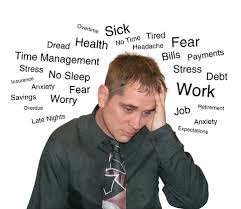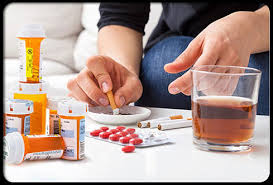Stigmatizing addiction patients

Stigmatizing addiction patients in anyway is wrong and doesn’t help but kills the morale of those who help the most
Stigmatizing addiction patients: Addiction is a disease of free will
Over the last few decades of my practice as a medical professional, I have met patients globally with different disturbing health conditions coming to my office for treatment which we have gladly offered to a resounding positive feedback. We have made it a routine as experts from AWAREmed Health and Wellness Resource Center to give our very best to all our clients irrespective of their limitations. We believe in offering lasting solutions to all health complications that we can professionally handle. This has made us move from strength to strength over the years. However, one problem of drug addiction keeps recurring owing to the nature of its effects to people differently. This one story disturbs me the most because it came to my attention several years after I was first introduced to the couple. That story is going to form part of our discussion even as we focus on stigmatizing addiction patients both internally and externally.
Drug addiction is a medical problem and has nothing to do with one’s morals. It is painful seeing patients giving up on treatment because they keep relapsing every time they are about to have a breakthrough. We are taking seriously the issue of relapse so that we can be in the front lane in defeating the beast of addiction. If you know anyone struggling with any kind of addiction, our doors are always open for you and you can call Doctor Dalal Akoury to help you recover professionally and with dignity.
Stigmatizing addiction patients: Stop the humiliation and disgrace
Back to the story, three decades ago a couple visited my office with an addiction problem. The man who was alcoholic was in the company of his wife to seek help. Before we could even start the session, they excused themselves shortly and I felt that they were consulting on something before the session. I was surprised several minutes and hours later that my client vanished never to return. Several years later one of my students narrated this story to me and I was astonished. The student said, “when I was five or six years old, my maternal grandfather died of what I was told was complications of heart disease.” She believed that because that is what she was told. It was not until several years later, after she had graduated from a medical school in psychiatry, and had secured a job for a very long time using neuroimaging to study the addicted brain, that she learned the real reason for the death of her grandfather. One day her mother gave her the revelation that shocked her life. This was coming when her mother was sick and almost breathing her last, “I need to tell you something I have never spoken to you about.” She disclosed to her that her grandfather had been an alcoholic and that he took his own life in his distress at not being able to control his strong urges to drink.
“Oh, Jesus I almost lost my grip.” Her mother had out of fear of stigma and shame kept the real reason for her grandfather’s death a secret from her that long. What surprised her is that even though she knew that in her whole professional life was devoted to trying to understand what drugs do to the brain and that she had heard her speak of addiction as a disease of the brain, still she was not going to tell her the whole truth.” So she wondered how she had miscommunicated, and how she had not made her realize that it was not a taboo to speak about addiction and that there should be no shame in it. This really troubled her and so she came to confide in me. Stop stigmatizing patients and let’s support them get better.
Stigmatizing addiction patients: Addiction is a disease of free will









